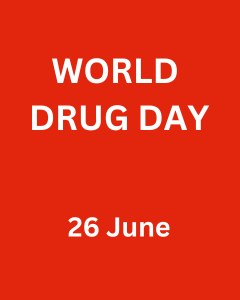Commissioner Clark, Foreword to the 2018 Global Prison Trends report
PRI has launched its annual flagship publication, Global Prison Trends 2018. Here we publish the foreword to the report, written by the Rt Hon Helen Clark, a Member of the Global Commission on Drug Policy, Former Prime Minister of New Zealand, and Former Administrator of the United Nations Development Programme. Read
Khalid Tinasti in Southeast Asia Globe: “How Duterte’s war on drugs feeds on his country’s worst fears”
Philippine President Rodrigo Duterte’s bloody crackdown on drugs is pushing the country’s most vulnerable people even further towards the margins, says Global Commission on Drugs executive secretary Khalid Tinasti Read original article in Southeast Asia Globe The Philippines’ extremist response to drugs marks a return of ‘majoritarianism’ in the political space
Ruth Dreifuss in dem Zeit: “Stürzte täglich eine Boeing ab, würden wir doch auch etwas ändern”
Lesen Sie den Originalartikel Jeden Tag 170 Opioid-Tote, ein vollbesetztes Flugzeug: Das sind die USA. Präsident Trump will daher die Todesstrafe für Dealer. Das wird scheitern und katastrophal enden. Die Opioid-Krise in den USA trifft fast jede Region und jede soziale Schicht und führt zu 170 Todesfällen pro Tag – ungefähr die
Anand Grover in Jakarta Post: “Development cannot be sustainable without drug policy reform”
Read original article in Jakarta Post By Anand Grover, former UN Special Rapporteur on the Right to Health and Senior Advocate, member of the Global Commission on Drug Policy Indonesia boasts one of the most vibrant emerging economies in the world. As such, the country is at the forefront of contemporary
EFE/El Mundo (USA): “El sueño de USA de un mundo sin drogas es una ilusión”
Read original in El Mundo. La presidenta de la Comisión Global de Políticas sobre Drogas, Ruth Dreifuss, consideró hoy que USA todavía sueña con un mundo libre de drogas, algo que “es una ilusión” teniendo en cuenta la crisis de opiáceos y el “fracaso” de la política de control de
Ruth Dreifuss dans Le Devoir, Canada: “Pour une réforme efficace des politiques sur les drogues”
Co-signé par Ruth Dreifuss, ancienne présidente de la Confédération suisse et présidente de la Commission globale de politique en matière de drogues; et Richard Elliott, directeur général du Réseau juridique canadien VIH/sida Lire l’article original dans Le Devoir. Le mois dernier, le Canada a réussi à faire adopter la toute première résolution concernant la lutte
Chair Dreifuss in Globe and Mail: “Ottawa should decriminalize all drugs – it’s effective policy”
by Ruth Dreifuss, Chair of the Global Commissioner and former President of Switzerland, and Richard Elliott, Executive Director of the Canadian HIV/AIDS Legal Network. Read original article in Globe and Mail. Last month, Canada secured the adoption of the first-ever resolution on addressing stigma against people who use drugs at the
Commissioner Jamos-Horta in STAT: “Falsehoods and facts about drugs and the people who use them”
Read original article in STAT. A new survey of Americans shows that many regard addiction as a behavioral failing, and most would not welcome those suffering from addiction into their neighborhoods, workplaces, or families. Such attitudes toward addiction, which mirror those in many other countries, perpetuate the abundant false narratives about drugs
Commissioners Banda, Cattaui, Clark and Dreifuss in El Espectador: “Revelan impacto discriminatorio de políticas represivas de drogas en mujeres y sus familias”
Para Joyce Banda, ex presidenta de Malawi; Maria Cattaui, ex secretaria-General de la Cámara Internacional de Comercio; Helen Clark, ex primera ministra de Nueva Zelandia; y Ruth Dreifuss, ex presidenta de Suiza; miembros de la Comisión Global de Políticas de Drogas in El Espectador. Click here to read in English. Se
Khalid Tinasti in The Hill: “International drug policy: Is the UN becoming irrelevant?”
Read Original Article in The Hill When the wave of adult marijuana legalization in some states started in 2013, the position of the federal authorities regarding the government’s international obligations to prohibit drugs was based on a flexible interpretation of the United Nations drug conventions, commonly known as the Brownfield doctrine. The legality













